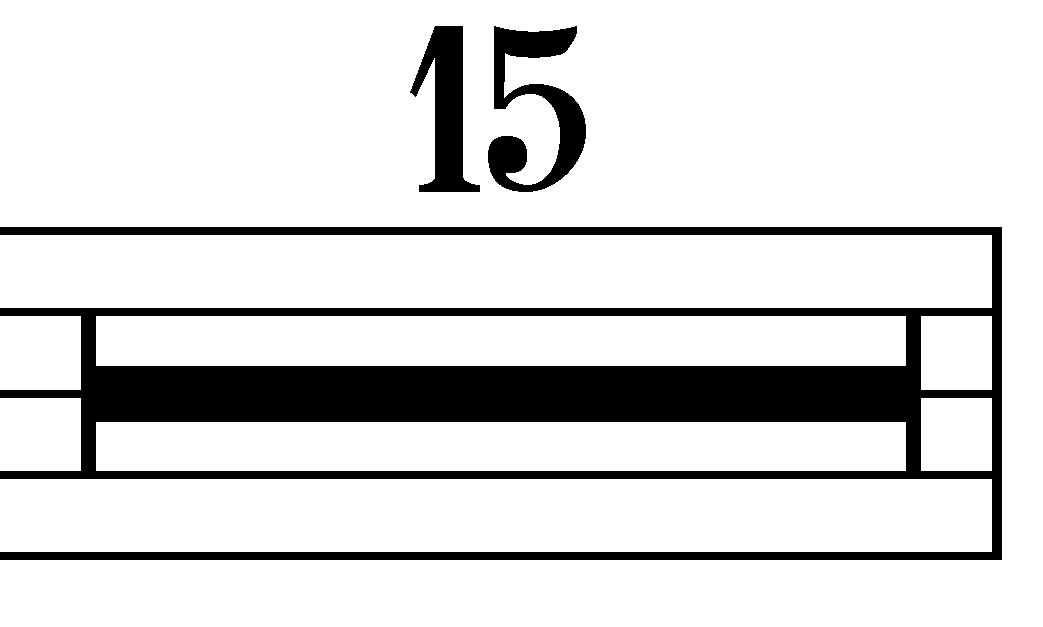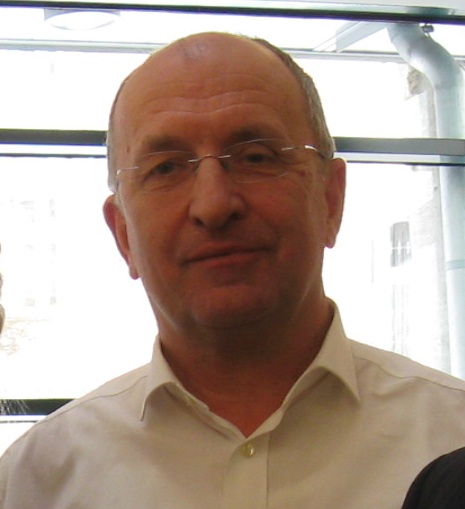|
Tantum Ergo, WAB 32
' ("Let us raise"), WAB 32, is the first of eight settings of the hymn ''Tantum ergo'' composed by Anton Bruckner in 1845. History Bruckner composed the motet in the fall of 1845 at the end of his stay in Kronstorf or at the beginning of his stay in St. Florian Abbey. The original manuscript, which was dedicated to the St. Florian Abbey, is stored in the archive of the abbey. A copy made by Bruckner's student Oddo Loidol is stored in the archive of the Kremsmünster Monastery. The motet was first published without the "facultative" bars as ''Pange lingua'' by Wöss, Universal Edition, together with the '' Vexilla regis'' in 1914 – the reason why Grasberger put is as WAB 32 after the Pange lingua, WAB 31.C. van Zwol, p. 701. The full version is put in Band XXI/7 of the '. Music The work of 38 bars (36 bars + a 2-bar ''Amen'') in D major is scored for choir ''a cappella''. The bars 24 to 34, which Bruckner put as optional, were removed in the first edition. This ... [...More Info...] [...Related Items...] OR: [Wikipedia] [Google] [Baidu] |
Anton Bruckner
Josef Anton Bruckner (; 4 September 182411 October 1896) was an Austrian composer, organist, and music theorist best known for his symphonies, masses, Te Deum and motets. The first are considered emblematic of the final stage of Austro-German Romanticism because of their rich harmonic language, strongly polyphonic character, and considerable length. Bruckner's compositions helped to define contemporary musical radicalism, owing to their dissonances, unprepared modulations, and roving harmonies. Unlike other musical radicals such as Richard Wagner and Hugo Wolf, Bruckner showed extreme humility before other musicians, Wagner in particular. This apparent dichotomy between Bruckner the man and Bruckner the composer hampers efforts to describe his life in a way that gives a straightforward context for his music. Hans von Bülow described him as "half genius, half simpleton". Bruckner was critical of his own work and often reworked his compositions. There are several version ... [...More Info...] [...Related Items...] OR: [Wikipedia] [Google] [Baidu] |
Bar (music)
In musical notation, a bar (or measure) is a segment of time corresponding to a specific number of beats in which each beat is represented by a particular note value and the boundaries of the bar are indicated by vertical bar lines. Dividing music into bars provides regular reference points to pinpoint locations within a musical composition. It also makes written music easier to follow, since each bar of staff symbols can be read and played as a batch. Typically, a piece consists of several bars of the same length, and in modern musical notation the number of beats in each bar is specified at the beginning of the score by the time signature. In simple time, (such as ), the top figure indicates the number of beats per bar, while the bottom number indicates the note value of the beat (the beat has a quarter note value in the example). The word ''bar'' is more common in British English, and the word ''measure'' is more common in American English, although musicians generally u ... [...More Info...] [...Related Items...] OR: [Wikipedia] [Google] [Baidu] |
Motets By Anton Bruckner
In Western classical music, a motet is mainly a vocal musical composition, of highly diverse form and style, from high medieval music to the present. The motet was one of the pre-eminent polyphonic forms of Renaissance music. According to Margaret Bent, "a piece of music in several parts with words" is as precise a definition of the motet as will serve from the 13th to the late 16th century and beyond.Margaret Bent,The Late-Medieval Motet in ''Companion to Medieval & Renaissance Music'', edited by Tess Knighton and David Fallows, 114–19 (Berkeley, California: University of California Press, 1992): 114. . The late 13th-century theorist Johannes de Grocheo believed that the motet was "not to be celebrated in the presence of common people, because they do not notice its subtlety, nor are they delighted in hearing it, but in the presence of the educated and of those who are seeking out subtleties in the arts". Etymology In the early 20th century, it was generally believed the na ... [...More Info...] [...Related Items...] OR: [Wikipedia] [Google] [Baidu] |
Latvian Radio Choir
The Latvian Radio Choir (Latvijas Radio koris) is the professional chamber choir of Latvian Radio which was founded in 1940 by the Latvian conductor Teodors Kalnins. Following the musical direction by Edgars Račevskis (1963–1986) and Juris Kļaviņš (1987 – 1992). The choir has had two conductors ever since 1992 - musical director and principal conductor. The choir is currently of 24 singers under the leadership of Sigvards Kļava and Kaspars Putniņš. Selected discography *Paradisus vocis, 2018. Composer Andrejs Selickis conducted by Sigvards Kļava. *Sacred Love, 2014. Composers Yuri Falik, Arturs Maskats, Georgy Sviridov conducted by Sigvards Kļava. *Mythes étoilés, 2014. Composers Lasse Thorersen, György Ligeti, Mārtiņš Viļums, John Cage, Anders Hillborg, Toivo Tulev conducted by Sigvards Kļava, Kaspars Putniņš. *Adam's Lament (ECM), 2012. Composed by Arvo Pärt conducted by Tõnu Kaljuste. Winner of Grammy Award The Grammy Awards (stylized as GRAMMY), o ... [...More Info...] [...Related Items...] OR: [Wikipedia] [Google] [Baidu] |
Arnold Schoenberg Chor
The Arnold Schoenberg Choir (german: Arnold Schoenberg Chor) is a Viennese/Austrian choir which was founded 1972 by Erwin Ortner, who is still its artistic director. The choir has a high reputation both among conductors and among critics and the musical scene in general. All members of the choir have broad experience and expertise in vocal music; most of them have graduated from or are currently studying at the Vienna University of Music and Performing Arts. The choir is named after Viennese composer Arnold Schoenberg. Repertoire The choir's repertoire covers a wide range from Renaissance to contemporary music, from '' a cappella'' works to large orchestral pieces and operas. The choir has worked with famous conductors such as Claudio Abbado, Riccardo Muti and Lorin Maazel – to name only a few. Moreover, it has performed in opera productions such as Schubert's ''Fierrabras'' at the Vienna State Opera, Messiaen's ''Saint François d'Assise'' and Berio's Cronaca del luogo ... [...More Info...] [...Related Items...] OR: [Wikipedia] [Google] [Baidu] |
Erwin Ortner
Erwin Ortner (born 15 December 1947, in Vienna) is an Austrian conductor, especially of vocal music. He is the founder and artistic director of the Arnold Schoenberg Chor. References External links * * Erwin OrtnerArnold Schoenberg Chor The Arnold Schoenberg Choir (german: Arnold Schoenberg Chor) is a Viennese/Austrian choir which was founded 1972 by Erwin Ortner, who is still its artistic director. The choir has a high reputation both among conductors and among critics and the ... Erwin Ortner (Choral Conductor)bach-cantatas.com wien.gv.at 2010 Male conductors (music) 1947 births Living people Musicians from Vienna 21st-century Austrian conductors (music) 21st-century male musicians {{Austria-conductor-stub ... [...More Info...] [...Related Items...] OR: [Wikipedia] [Google] [Baidu] |
Ealing Abbey
Ealing Abbey is a Catholic Benedictine monastery, monastic foundation on Castlebar Hill in Ealing. It is part of the English Benedictine Congregation. As of 2020, the Abbey had 14 monks. History The monastery at Ealing was founded in 1897 from Downside Abbey, originally as a parish in the Archdiocese of Westminster. It was canonically erected as a dependent priory in 1916 and raised again to the rank of independent conventual priory in 1947. Finally, in 1955 it was elevated to the status of an abbey by Pope Pius XII. The building The architect of the Abbey Church, a Grade II Listed building, was Frederick Walters, F A Walters. Two or three bays in the nave were open by 1899 and part of the monastery in use by 1905. By 1915 the sanctuary and Lady Chapel together with more bays were completed. The west end together with the four western bays were completed by 1934 by Edward John Walters, the son of F A Walters. Two bombs damaged the church in 1940. The first destroyed the organ c ... [...More Info...] [...Related Items...] OR: [Wikipedia] [Google] [Baidu] |
Prague Chamber Choir
The Prague Chamber Choir (''Pražský komorní sbor'') is a Czech choir founded in Prague in 1990 by singers of the Prague Philharmonic Choir. It has performed concerts in Australia, Brazil, Israel, Japan, Lebanon and many European countries (e.g. Wexford Festival Opera, Rossini Opera Festival The Rossini Opera Festival (ROF) is an international music festival held in August of each year in Pesaro, Italy, the birthplace of the opera composer Gioachino Rossini. Its aim, in addition to studying the musical heritage of the composer, is to r ...). External links * Czech choirs Chamber choirs Musical groups established in 1990 1990 establishments in Czechoslovakia {{czechRepublic-stub ... [...More Info...] [...Related Items...] OR: [Wikipedia] [Google] [Baidu] |
Pange Lingua, WAB 31
' (Tell, my tongue), WAB 31, is a sacred motet composed by Anton Bruckner in . It is a setting of the first strophe of the Latin hymn Pange lingua for the celebration of Corpus Christi. History Bruckner composed the motet in when, as eleven-year-old boy, he was studying by Johann Baptist Weiß in Hörsching.C. van Zwol, pp. 699-700U. Harten, p. 329 It is not known whether it was performed at that time. In 1891, towards the end of his life, Bruckner "restored" this beloved very first composition.C. van Zwol, p. 709 The first version of the work, the original manuscript of which is lost, was found as a transcription by Franz Bayer, Steyr. The transcription of the first version and the manuscript of the 1891 version are stored in the archive of the ''Österreichische Nationalbibliothek''. The second version of the motet was first published as a facsimile in 1927 by Max Auer in his book '. The first version was first published in band II/1, p. 228 of the Göllerich/Auer bi ... [...More Info...] [...Related Items...] OR: [Wikipedia] [Google] [Baidu] |
Vexilla Regis (Bruckner)
''Vexilla regis'' (The royal banner), WAB 51, is the final motet written by the Austrian composer Anton Bruckner. History Bruckner composed it on 9 February 1892. The work, the manuscrit of which is archived at the ''Österreichische Nationalbibliothek'', is based on the Latin hymn ''Vexilla Regis'' by Venantius Fortunatus. It was first performed on Good Friday, 15 April 1892, and was published in the same year by Josef Weinberger, Vienna. In the Nowak-Bauernfeind new edition (Band XXI/29 of the ') the motet was re-issued with the revised text of the hymn and an additional 4-bar ''Amen''. Music Bruckner put strophes 1, 6 and 7 of the text in a motet of 108 bars in Phrygian mode for mixed choir ''a cappella''. Alike he did in ''Christus factus est'' WAB 11 and ''Virga Jesse'' WAB 52, Bruckner used the ' on the words ''prodeunt'' (bars 5–8), ''unica'' (bars 41–44), and ''Trinitas'' (bars 77–80). Although it is in Phrygian mode the motet is characterized by Bruck ... [...More Info...] [...Related Items...] OR: [Wikipedia] [Google] [Baidu] |
Universal Edition
Universal Edition (UE) is a classical music publishing firm. Founded in 1901 in Vienna, they originally intended to provide the core classical works and educational works to the Austrian market (which had until then been dominated by Leipzig-based publishers). The firm soon expanded to become one of the most important publishers of modern music. History In 1904, UE acquired Aibl publishers, and so acquired the rights to works by Richard Strauss, Max Reger, and other composers, but it was the arrival of Emil Hertzka as managing director in 1907 (who remained until his death in 1932) which really pushed the firm towards new music. Under Hertzka, UE signed contracts with a number of important contemporary composers, including Béla Bartók and Frederick Delius in 1908; Gustav Mahler and Arnold Schoenberg in 1909 (Mahler's '' Symphony No. 8'' was the first work UE acquired an original copyright to); Anton Webern and Alexander von Zemlinsky in 1910; Karol Szymanowski in 1912; Leoš J ... [...More Info...] [...Related Items...] OR: [Wikipedia] [Google] [Baidu] |
Josef V , a Japanese manufacturer of musical instruments
{{disambiguation ...
Josef may refer to *Josef (given name) *Josef (surname) * ''Josef'' (film), a 2011 Croatian war film *Musik Josef Musik Josef is a Japanese manufacturer of musical instruments. It was founded by Yukio Nakamura, and is the only company in Japan specializing in producing oboe The oboe ( ) is a type of double reed woodwind instrument. Oboes are usually ma ... [...More Info...] [...Related Items...] OR: [Wikipedia] [Google] [Baidu] |



